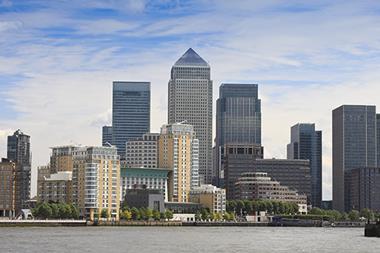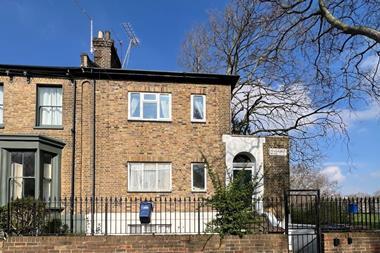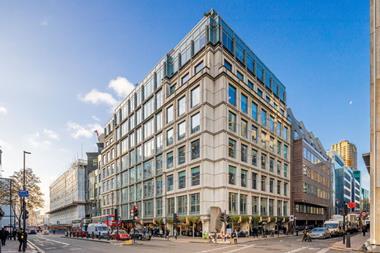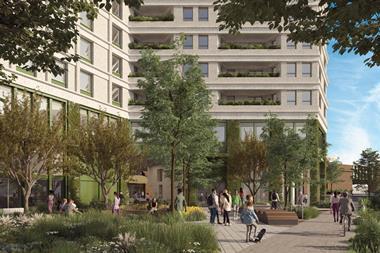The value of central London's property investment deals in the first quarter of 2009 fell by 76% compared to the first quarter of 2008, according to Cushman & Wakefield
It said in figures published today that the first quarter total also fell by 83% compared to the first quarter in 2007 when the market was at its peak.
Cushman's figures show that £678.9m of commercial property was traded in central London in the first quarter of the year against £2.826bn in Q1 2008 and £3.939bn in Q1 2007.
It said, however, that the weakness of sterling and the fall in values over the last 12 months, have made London property much more affordable for overseas buyers and investor interest in both the West End and City markets has increased considerably in the last few weeks.
In the City of London market, £470m was traded with German funds dominating activity. TMW acquired 11 Pilgrim Street, EC4 for £56m whilst GLL Real Estate Partners, on behalf of pension fund BVK bought Governor’s House for £70m. Swiss fund Affia also acquired Garrard House, Gresham Street for £70.5m.
In the West End market, transactions in the first quarter were just over £200m which is only 13% of the turnover in Q1 2008. The average size of the 14 deals completed was £14.5m. The largest transactions included the purchase of Times Place, at 45 Pall Mall, for £56.5m and Washington House at 40 Conduit Street, was purchased for £30m.
Clive Bull, head of central London investment, Cushman & Wakefield, said: 'There is clearly evidence of more interest and more activity taking place in the West End market. Whilst transactions completed were at an all time low in Q1, a significant number of contracts were exchanged and an even greater number went into solicitor's hands. The weakness of sterling has been an important factor in buying decisions for overseas buyers and a number have decided that now is the time to start investing in the West End. There has also emerged a clear distinction between properties offering solid income where, arguably, prices are hardening, and less secure properties where yields continue to drift. The continuing lack of debt means there is limited competition for the larger lots although at prices up to £10m, competition appears to be increasing.'
Bill Tyser, head of City investment, said: '60% of the £470m traded in Q1 in the City was accounted for by overseas investors and £250m was originally put under offer before Christmas. With interest rates now so low and sterling weak, interest from these overseas investors has increased still further. With qualifying stock in reasonably short supply, there has been a hardening in the yield for defensive quality investments since the acquisition of 1 Fleet Place in December 2008 which reflected a yield of 7.75%. Those properties, however, that do not match the criteria of good quality buildings - well let to recognisable covenants - the market remains remarkably thin and largely dysfunctional due to the difficulties which continue to be experienced in securing satisfactory financing terms.'





























No comments yet